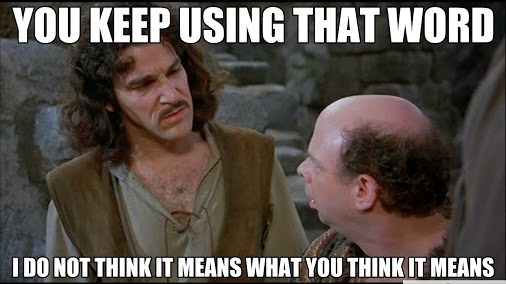![]() If you run a “Define:” search on the word “Exact” in Google you get this:
If you run a “Define:” search on the word “Exact” in Google you get this:
Not approximated in any way; precise.
Pretty close to what you were thinking, no? Well according to the Google AdWords team YOU ARE WRONG SIR!

If you have ever been a user of Google AdWords you know there are 3 basic keyword types for your advertising; Broad, Phrase, and Exact.
Broad match is pretty simple, anything with that keyword or phrase has the ability to show your ads. The keywords in a phase could be out of order, with words in between them, doesn’t matter. Google puts it this way:
Ads may show on searches that include misspellings, synonyms, related searches, and other relevant variations.
Pretty simple and quick right?
Phrase match gets a little more complex. With phrase match ads will show for searches that match the phrase you provide. Words can come before or after the phrase, but as long as the phrase in in there, your ads can show. Again, Google puts it like this:
Ads may show on searches that match a phrase, or are close variations of that phrase, with additional words before or after. Ads won’t show, however, if a word is added to the middle of the phrase, or if words in the phrase are reordered in any way.
Little more complex, but again pretty simple.
Exact match use to be exact, at least as we all would define it. Before 2012, exact match meant just that: exact. It was very simple and easy. You entered a keyword and your ad only came up for that word. You were responsible for covering misspellings and plurals.
This ended up being the preferred match type of marketers. You had control over where your ad showed and depending on the detail of your keywords you gained insight into the rise and fall in the popularity of specific products or services (internally we were able to watch the rise and fall in popularity of ASP.NET versions, Silverlight, and AJAX).
Then in 2012 Google started their campaign of redefining. It started very innocently really. Google decided in 2012 that they would start to include plurals, misspellings, typos (aren’t those misspellings?), and other versions of a keyword in the exact match definition. For most marketers this was more a minor inconvenience. Most had already covered these added variations in their keyword lists, if they wanted them covered at all.
After 5 years Google decided it was time to add to their new definition of “exact.” In April Google announced that on top of the above additions in 2012, they would now include variations in word order and function words. How does Google say it?
Ads may show on searches that match the exact term or are close variations of that exact term. Close variations here may also include a reordering of words if it doesn’t change the meaning, and the addition or removal of function words (prepositions, conjunctions, articles, and other words that don’t impact the intent of a search).
So, in other words kinda sorta exact, when we think it makes sense. Something that really stands out in all this is the reordering of words. Word order can make a big difference, especially in the tech industry. A perfect example for our industry is “Windows Host” and “Host Windows”; One is looking for a Windows host, the other is looking to host Windows, possible on your own server. Google is basically asking advertisers to trust them and their ability to discern searcher’s intent.
Marketers have been pretty vocal about their displeasure over these latest changes, but be sure this is the future for Google. Google is shooting to make AdWords what is called “Set and Forget.” In a perfect world Google would have you enter your keywords into AdWords, add a few ads with a budget, and walk away. Google frames it as making it easier for you as the user, so you can focus on “what is important.” Some cynics might say it is just Google trying to spend more of your money for you.
In either case, it is the future of advertising at Google, so it is time to redefine how we define “exact.”
